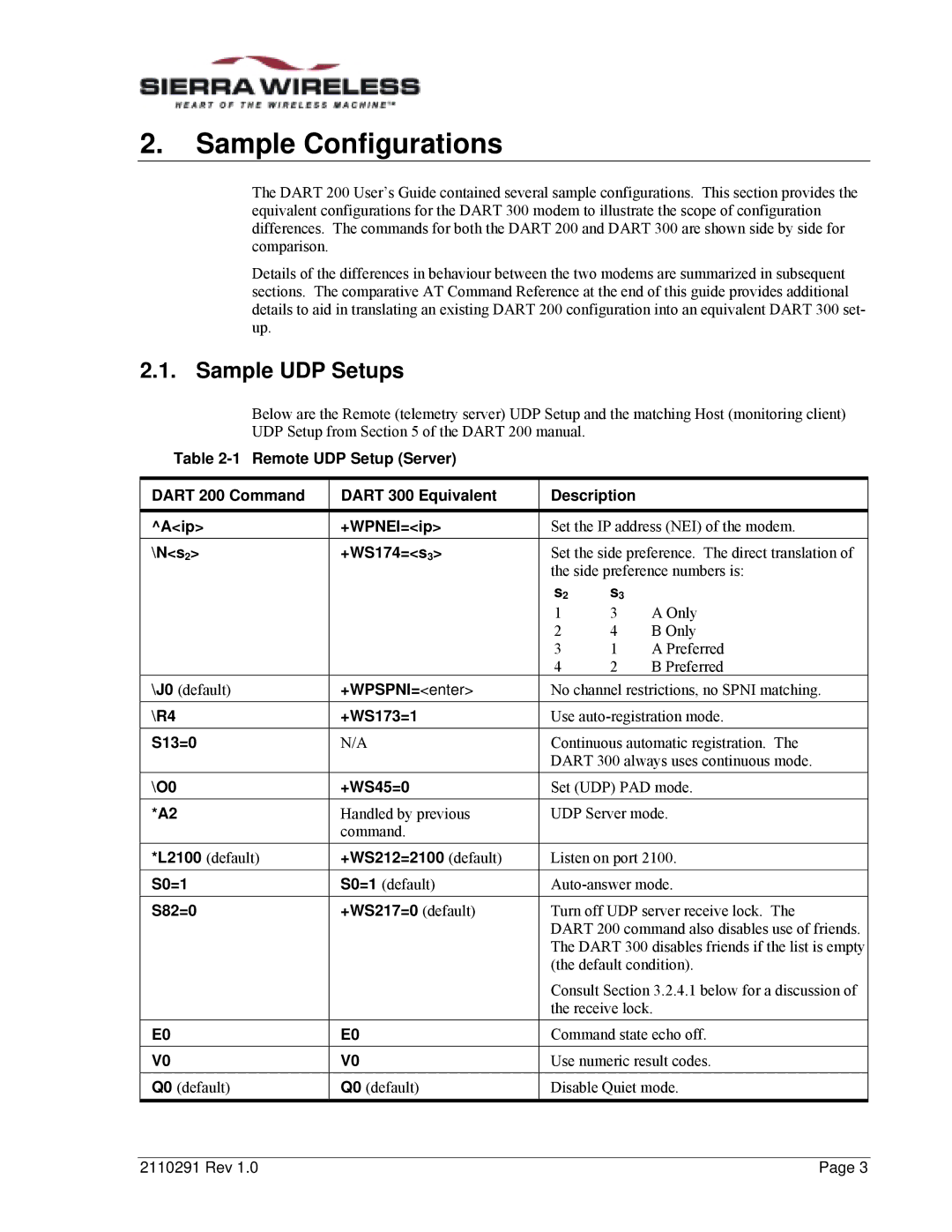
2.Sample Configurations
The DART 200 User’s Guide contained several sample configurations. This section provides the equivalent configurations for the DART 300 modem to illustrate the scope of configuration differences. The commands for both the DART 200 and DART 300 are shown side by side for comparison.
Details of the differences in behaviour between the two modems are summarized in subsequent sections. The comparative AT Command Reference at the end of this guide provides additional details to aid in translating an existing DART 200 configuration into an equivalent DART 300 set- up.
2.1. Sample UDP Setups
Below are the Remote (telemetry server) UDP Setup and the matching Host (monitoring client) UDP Setup from Section 5 of the DART 200 manual.
Table
| DART 200 Command | DART 300 Equivalent | Description |
| |
|
|
|
| ||
| ^A<ip> | +WPNEI=<ip> | Set the IP address (NEI) of the modem. | ||
| \N<s2> | +WS174=<s3> | Set the side preference. The direct translation of | ||
|
|
| the side preference numbers is: | ||
|
|
| s2 | s3 |
|
|
|
| 1 | 3 | A Only |
|
|
| 2 | 4 | B Only |
|
|
| 3 | 1 | A Preferred |
|
|
| 4 | 2 | B Preferred |
| \J0 (default) | +WPSPNI=<enter> | No channel restrictions, no SPNI matching. | ||
| \R4 | +WS173=1 | Use | ||
| S13=0 | N/A | Continuous automatic registration. The | ||
|
|
| DART 300 always uses continuous mode. | ||
| \O0 | +WS45=0 | Set (UDP) PAD mode. | ||
| *A2 | Handled by previous | UDP Server mode. | ||
|
| command. |
|
|
|
| *L2100 (default) | +WS212=2100 (default) | Listen on port 2100. | ||
| S0=1 | S0=1 (default) | |||
| S82=0 | +WS217=0 (default) | Turn off UDP server receive lock. The | ||
|
|
| DART 200 command also disables use of friends. | ||
|
|
| The DART 300 disables friends if the list is empty | ||
|
|
| (the default condition). | ||
|
|
| Consult Section 3.2.4.1 below for a discussion of | ||
|
|
| the receive lock. | ||
| E0 | E0 | Command state echo off. | ||
| V0 | V0 | Use numeric result codes. | ||
| Q0 (default) | Q0 (default) | Disable Quiet mode. | ||
|
|
|
|
|
|
| 2110291 Rev 1.0 |
|
|
| Page 3 |
